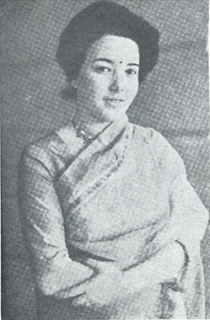BJP looking for Netaji mascot
Subhas Chandra Bose as a mascot of Hindutva
The real importance of the BJP president,
Mr. Lal Krishna Advani's announcement at the recent party national executive
meeting in New Delhi
What, however, is of interest is Mr
Advani's audacious attempt to co-opt Subhas Chandra Bose in the pantheon of
proponents of Hindutva and make him the mascot of his Yatra. If the Yatra is
successful, then not only does the BJP stand to gain electorally, but Subhash
Chandra Bose will be freed from the confines of political myth-making that has
reduced him to callendar lithographs which adorn living rooms in provincial
Bengal and the dimly lit offices of Forward Bloc in Calcutta
In a sense, the appropriation of Subhash
Chandra Bose by the BJP is a posthumous homecoming for a nationalist who
believed that rashtrabhakti is a synthesis of religion and nationalism, of the
spiritual and the political. In the early decades of this century, when others
were looking up to Mohandas Karamchand Gandhi for inspiration, Bose was looking
elsewhere for guidance: His search for a religious philosophy that would spur
political activism led him to explore the teachings of Swami Vivekananda and
the writings of Aurobindo Ghosh. The latter made a lasting impression on his
mind, providing his political activism with a religious side.
The profound Impact that Aurobindo Ghosh
had on Subhash Chandra Bose is reflected in his autobiography: "In my
undergraduate days, Aurobindo Ghosh was easily the most popular leader in
Bengal... a mixture of spirituality and politics had given him a halo of
mysticism and made his personality more fascinating to those who were
religiously inclined... We felt convinced that spiritual enlightenment was
necessaly for effective national service..."
It is, therefore, not surprising that he
should have also been influenced by Bankim Chandra Chattergee's construction of
nationalism. And like Aurobindo Ghosh, Bankim Chandra Chatterjee and Bal
Gangadhar Tilak, the Indian nation for him extended beyond the geographical to
the devotional plane. During his college days he discovered the wretchedness of
not India
A quintessential Hindu
Curiously, his view of the other India
In his book, 'Brothers Against The Raj',
Leonard A. Gordon writes about Bose's quest for a religious philosophy to serve
as the core of nationalism and sustain his political activism: "Inner
religious explorations continued to be a part of his adult life. This set him
apart from the slowly growing number of atheistic socialists and communists who
dotted the Indian landscape." And It was this "religious
exploration" that set apart Subhash Chandra Bose from Jawaharlal Nehru for
whom "this was vain quest". Although Bose scrupulously avoided
publishing his faith or his quest, he remained firm in his belief that
"Hinduism was an essential part of his Indianness", his Bharatiyata.
In other words, he subscribed to what is now considered politically
incorrect--cultural nationalism or, call It If you must by its other name,
Hindutva.
This did not, however, make him a bigoted
Hindu, nor did It propel him towards Hindu orthodoxy. Commenting on
"definite Hindu streak in Bose's dislike for Gandhi", Nirad C.
Chaudhuri records in his memoirs, 'Thy Hand! Great Anarch', "He was in no
sense a bigoted or even orthodox Hindu. But he had grown up in the first two
decades of the twentieth century in Bengal ,where,
owing to the influence of Bankim Chandra Chatterjee and Swami Vivekananda,
there was a fusion of religion and nationalism, so that the nationalist feeling
had a pronounced Hindu complexion and Hinduism a pronounced political
character".
Champion of Nationalism
This "fusion of religion and nationalism" and Hinduism with a "pronounced political character" came into play in 1925 when during his incarceration at Mandalay prison, Bose, along with the other Bengali prisoners, organised Durga Puja on the jail premises and demanded that the expenses be borne by the authorities. When the latter refused, Bose converted his spiritual quest into a political campaign by launching a hunger strike. This practice of political Hinduism had an electrifying impact on public opinion and soon the Swarajists lent their voice to the popular demand for the release of all political prisoners who had not been charged with a specific crime.
His faith in Hinduism with "pronounced political character" which formed the core of his Indianness, is not the only reason why the BJP can legitimately stake its claim on Subhash Chandra Bose: His views on governance tally with those of the BJP, as does his definition of nationalism, "There will be a strong Central Government. Without such a Govemment," declared Bose during the War, "order and public security cannot be safeguarded..."
And all those who deride nationalism, more so cultural nationalism, as "narrow, selfish and aggressive", "a hindrance to the promotion of Internationalism", would do well to go through Bose's speech at
Mr. Advani's yatra, however, would be a futile exercise if he fails to draw public attention to this Bose which has remained hidden from public view all these years.
To "shape society and politics according to our own ideals and according to our own needs", to "abolish the entire caste system", to put "the India of the villages where poverty stalks over the land, men die like flies and illiteracy is the prevailing order" firmly back in the national agenda, to safeguard our security with a "strong Central Government", we need to rediscover the champion of cultural nationalism hidden behind the leader of the 'Azad Hind Fauj'.


Comments
Post a Comment